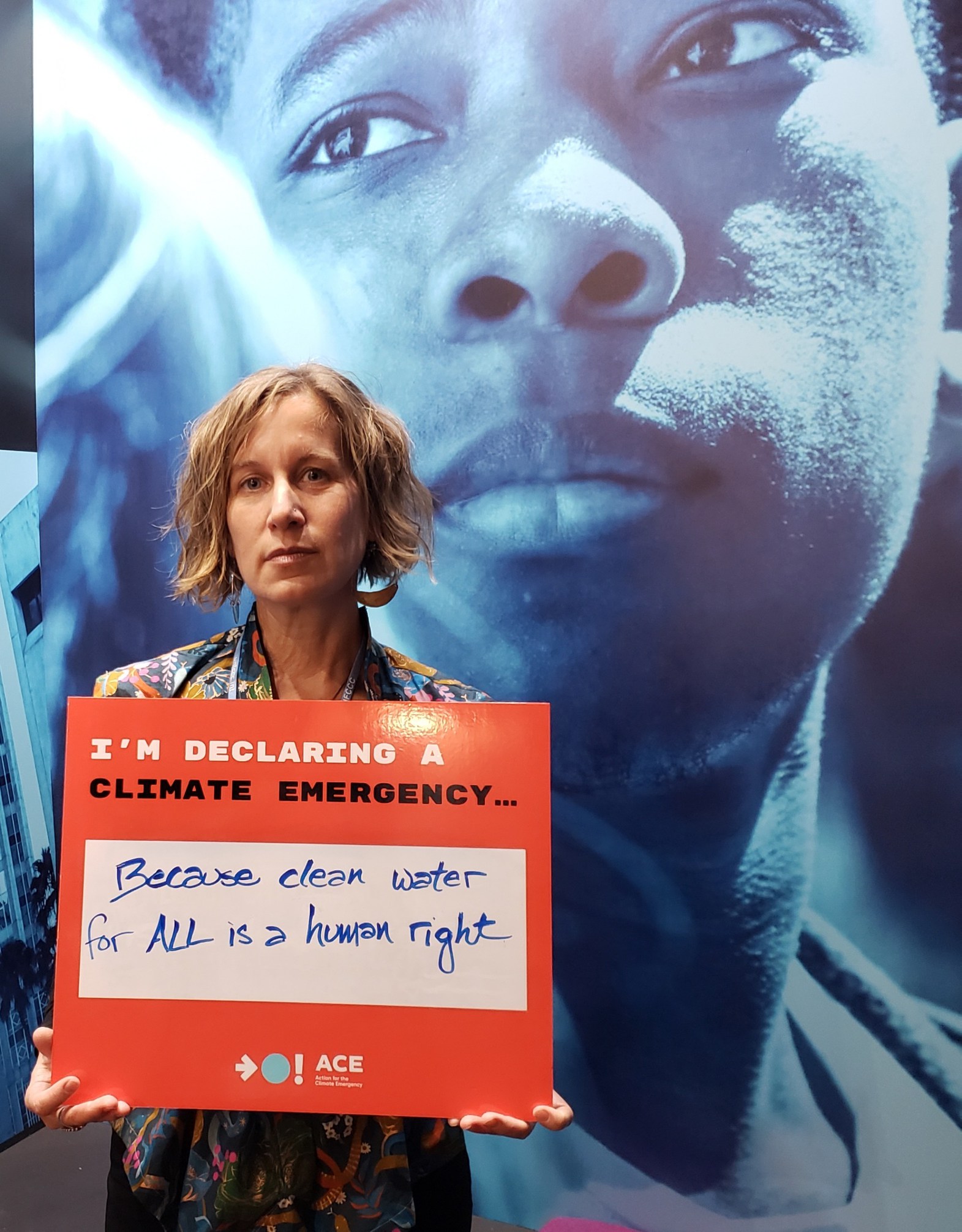 I arrived at COP26 in Glasgow, Scotland from my home in the Great Lakes region, and was heartened by the global community working to tackle climate change from many different angles. And yet, while there are many positive outcomes from COP26, they do not hit the mark for the accelerated pace of change we need. As I was reminded again and again, the people and countries that have done the least to create climate change issues are the most deeply impacted, with the fewest resources to create adaptive solutions. In my time at the conference, the voices of youth, island dwellers and indigenous people were loud, clear and absolutely urgent – their survival is threatened. But the outcomes of COP26 do not reflect the extent of change needed for the Great Lakes region and the planet as a whole.
I arrived at COP26 in Glasgow, Scotland from my home in the Great Lakes region, and was heartened by the global community working to tackle climate change from many different angles. And yet, while there are many positive outcomes from COP26, they do not hit the mark for the accelerated pace of change we need. As I was reminded again and again, the people and countries that have done the least to create climate change issues are the most deeply impacted, with the fewest resources to create adaptive solutions. In my time at the conference, the voices of youth, island dwellers and indigenous people were loud, clear and absolutely urgent – their survival is threatened. But the outcomes of COP26 do not reflect the extent of change needed for the Great Lakes region and the planet as a whole.
While climate change impacts are inequitable, they are felt nearly everywhere to varying degrees. The Great Lakes and their communities are being impacted by climate change through more severe storms, more extreme higher and lower lake levels, and changing temperatures, which affect the lake ecosystems and also the surrounding communities. Urban centers with aging infrastructure, areas with fewer resources, and BIPOC (Black, Indigenous and People of Color) communities are disproportionately impacted.
While some look to the Great Lakes as a climate refuge for those who can no longer live in their own communities due to fire, floods and droughts, this region urgently needs a more coordinated and accelerated approach to adapt to the changes we are amidst. Climate change is a threat multiplier and exacerbates existing issues, so we must have strategic, intersectional solutions that create, multiply and scale positive change. We’re not there yet, by a longshot, so what do we need to do?
Start with an inclusive vision for where we want to be. The people of the Great Lakes region in their diversity are not represented at our decision-making tables. As we hasten to develop the strategies we actually need for systemic change, the voices of youth and BIPOC leaders must be central to deciding upon, and guiding the journey. Yes, this is about regional planning, preparation and action for the well-being of current Great Lakes residents. More critically, it’s about our future inhabitants – youth growing into adults here, and the incoming people that climate migration will lead here, seeking out the Great Lakes region as home.
Invite in diverse perspectives. With the Great Lakes at the heart of our region, we are already connected through these vital waters. Our current restoration and action agendas give us a strong base to stand on. But the same thinking and thinkers that have led us to this present moment will not get us to the change needed, in the relatively rapid timeframe required. We need to embrace new voices and intersectional collaboration. This will require us to look beyond regional expertise.
Connect globally for a bigger impact. It’s imperative that the Great Lakes region builds stronger relationships and opportunities to share knowledge and solutions with the global water and climate change community. While we know water and climate change are deeply connected, for the first time ever, there was a Water Pavilion at COP26 where global experts shared a diverse range of ideas, programs and implementable solutions. These were captured through hybrid presentations, with a combination of in-person and remote water experts from around the world. The opportunity to learn from each other on a global scale is vital if we want to achieve the climate goals that lead to healthy people with workable livelihoods and a vibrant planet.
Create opportunities for engagement in our communities and schools. Because our vision should be for all, we need everyone engaged at varying levels. For a start, let’s mandate statewide, regional and national climate and water education with a goal of healthy people and a vibrant planet, with equity and justice for all. At COP26, I saw the US ACE Coalition working to bring this vision to reality. Global youth leaders were also at COP26 calling out for change, with a fantastic contingent from the Great Lakes region among them. But our young adults struggle with eco-anxiety and climate grief – and most of their peers are not adequately taught about climate change issues. This leaves youth leaders feeling isolated and frankly, tired. We must do better to support these leaders, some of whom, by age 25, have been doing this work for more than a quarter of their lives.
The calls to action at COP26 were crystal clear in their urgency. And while they influenced the decisions made to reflect some global needs, the commitments made do not tap into the electric undercurrent of accelerated, larger-scale change truly needed. Let’s work within the Great Lakes region and connect with national and global partners to lead the change that’s needed now.
Stephanie Smith runs Zephyr Mangata, a consultancy accelerating positive change for people and the planet.
photo credit: Rebecca Anderson, ACE Action for the Climate Emergency

